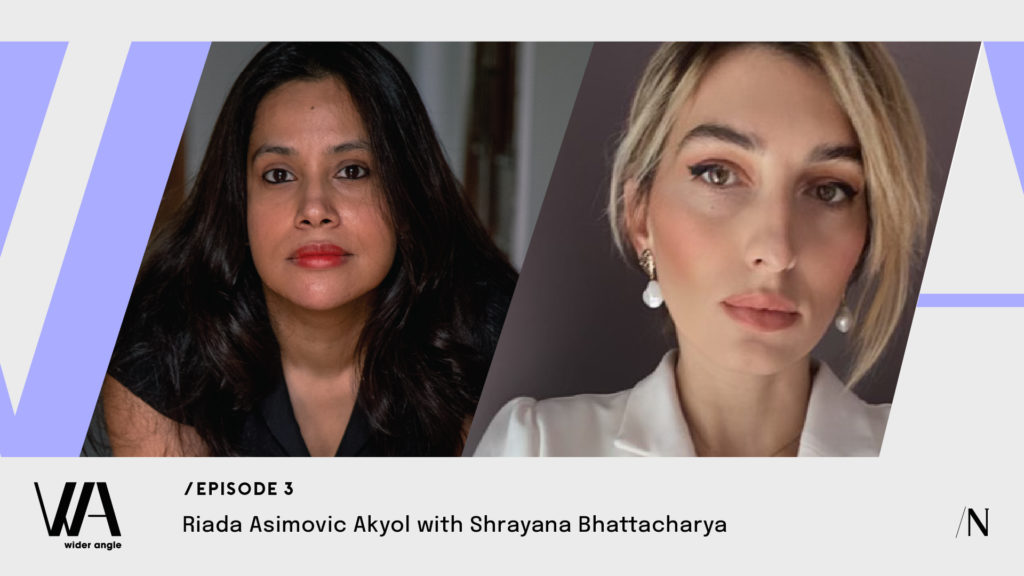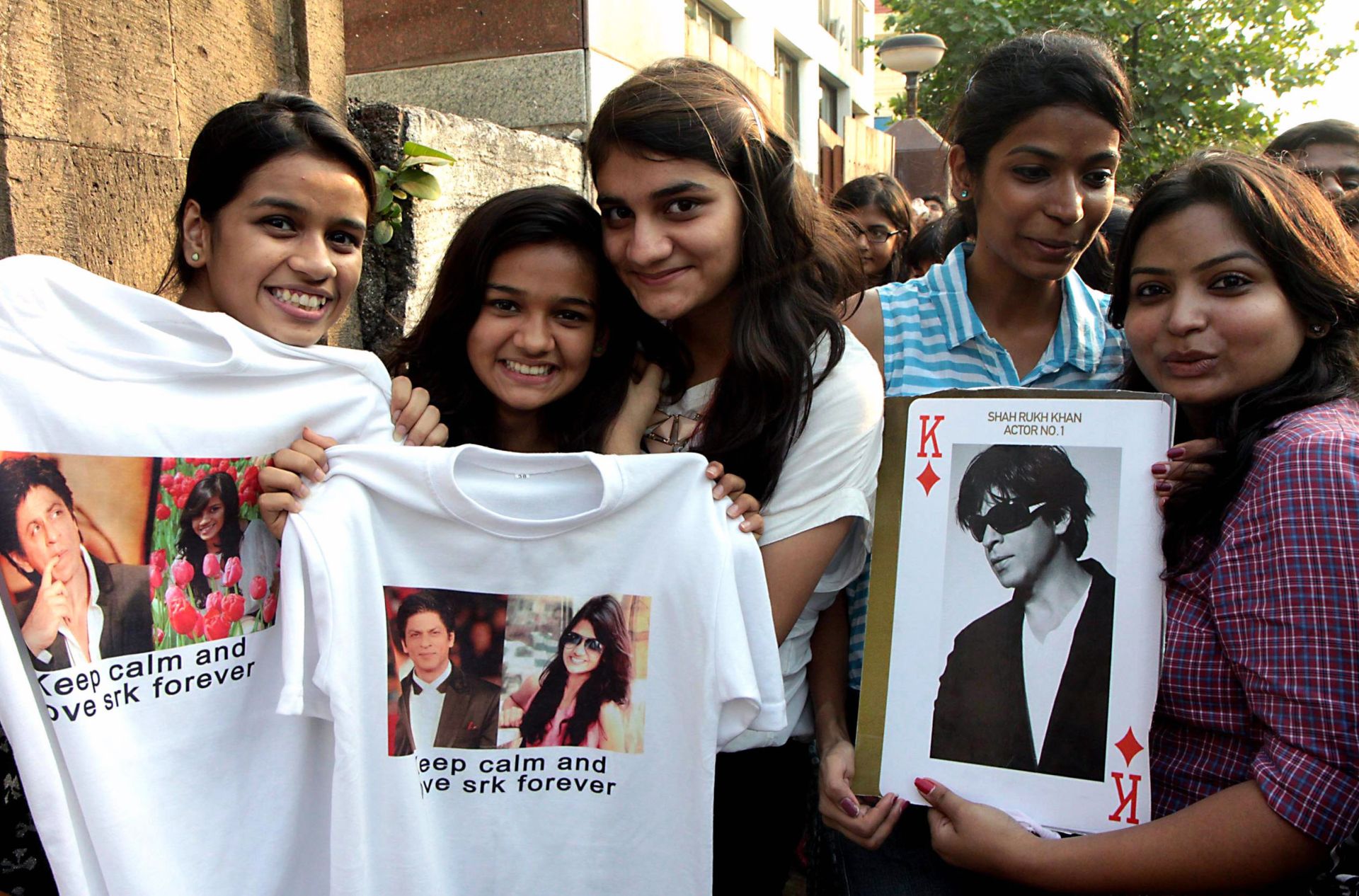The guest in this episode of New Lines’ Wider Angle podcast is Shrayana Bhattacharya, an economist at the World Bank’s social protection and labor unit for South Asia and the author of “Desperately Seeking Shah Rukh: India’s Lonely Young Women and the Search for Intimacy and Independence.” She joins Riada Asimovic Akyol for a discussion of her award-winning bestseller, which deals with the common grievances and aspirations of a diverse group of women in post-liberalization India as told through a series of profiles of different rural and urban working women. They are divided by caste and class, but Bhattacharya has described their different personal paths and yearnings through the perspective of common fandom for the Bollywood actor and global cinema icon Shah Rukh Khan. Within such a framework, where the women don’t search for just entertainment and fun but seek new ways of wellbeing, the author underlines that Shah Rukh Khan is “a female — not a feminist — icon.”
Bhattacharya incorporated findings from 15 years of interviews and work in the field in her debut book, adding personal experiences and rich data about the decreasing percentage of women in the Indian workforce and gender gaps in economic participation. While writing about the socialization of India’s women, she emphasizes the role and place of family in South Asia in general, in the sense that families aggrandize the pursuit of marriage in women’s lives and thwart ambition and female sexuality, including their physical movement. Even access to fun and entertainment is often obstructed, including the fandom of Shah Rukh’s movies, particularly among working-class women.

“While misogyny is certainly not a monopoly of the elite, and I think I describe this, this complete paranoia, particularly around female joy and pleasure, and a deep disgust towards it, to be perfectly honest, which I think holds across classes, I do think women’s willingness to resist seems to be much stronger in sort of our economic precariat than elsewhere,” Bhattacharya said in the podcast.
At the same time, new generations of young, educated women continue to challenge the surveillance from “the Indian state, our markets and families,” while myriad ordinary women practice “private rebellions” daily.
Listen to the conversation to hear the wider angle of the dynamics of gender relations in today’s India. It is available wherever you get your podcasts, and you can watch the conversation on New Lines magazine’s YouTube channel here.
“Wider Angle” is produced and hosted by Riada Asimovic Akyol. Special thanks for this episode to Surbhi Gupta.


